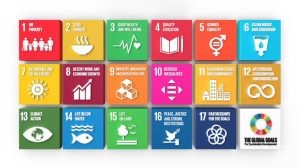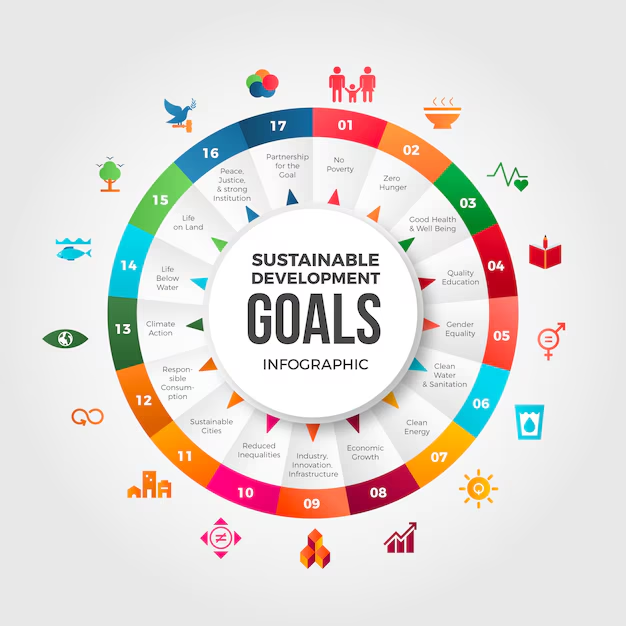Sustainable Development Goals and Their Impact on the World’s Future
The 17 Sustainable Development Goals were adopted by world leaders in 2015 with the aim of transforming our global society. These goals are meant to address global challenges like poverty, inequality, climate change and more.
These goals include: reducing poverty by ending extreme poverty for all people everywhere; Ending hunger and achieving food security and improved nutrition; Creating quality education accessible to all; and fostering economic growth that creates jobs and opportunity.
Economic Prosperity
The 17 Sustainable Development Goals and their 169 targets are designed to enact the necessary changes around the world that can lead to a better future. They are integrated and indivisible, building on the Millennium Development Goals (MDGs) to tackle global challenges holistically, from poverty to hunger to health to education to water and sanitation.
The goals are ambitious and sweeping, but they can be achieved by all countries – poor, rich and middle-income — working together to pursue economic growth while protecting the planet. They include specific targets like reducing extreme poverty by half; achieving universal access to affordable, reliable and sustainable energy; and ensuring quality and inclusive education.
Business can play a role in delivering these goals by aligning with them, investing in the future and contributing to social change. Many companies are already doing so. Novozymes, for example, prioritizes research and development that supports the goals by enabling the use of lower-cost clean energy sources or reducing water consumption through biological waste treatment. These investments will help to ensure that the SDGs are realized. They also help ensure that the company’s products are used in the most sustainable way possible, reducing carbon emissions and other environmental impacts.
Food Security
Food security is a key component of sustainable development. It is defined by the Food and Agriculture Organization of the United Nations as “a situation where all people at all times have physical, social and economic access to sufficient, safe and nutritious food to meet their dietary needs and food preferences.”
Food is an integral part of human survival and a basic necessity for life. However, global climate change and other factors like natural disasters are putting the world’s resources under increasing pressure. Droughts, floods and insect infestations can cause crop losses that lead to shortages. These shortages can be especially detrimental to rural families, which rely on food from their land to survive.
As a result, millions of people struggle with hunger each year. Several of the 17 SDGs are focused on improving food security, including goals 1 (end poverty), 2 (zero hunger) and 13 (climate action).
These goals have cross-cutting issues and synergies with other goals, such as goal 3 (good health and well-being), 7 (renewable energy), 11 (sustainable cities and communities), 12 (responsible consumption and production), 14 (life below water) and 15 (life on land). SDG 4 on gender equality is another goal that has multiple interlinkages with many of the other goals.

Public Health
The sustainable development goals include a number of social and environmental public health targets, including reducing the spread of infectious diseases such as HIV/AIDS, malaria, Ebola, and tuberculosis; improving global health through vaccinations and maternal and child care; ensuring universal access to affordable, reliable, sustainable and modern energy; and increasing the proportion of trees in the world’s ecosystem. The SDGs build on the work of the Millennium Development Goals, which helped lift a billion people out of poverty, end hunger and AIDS, reduce harmful industrial chemicals and ozone-depleting gases in the atmosphere, increase access to clean water and sanitation, and promote education for all.
SDG targets are measurable, quantifiable and time-bound. They are also integrated, recognizing that actions in one area will affect outcomes in others and that development must be balanced across the economic, social and environmental dimensions. The SDGs also include a commitment to “leave no one behind” through a pledge to fast-track progress for the most vulnerable.
Reaching the 17 goals will require an unprecedented effort by all sectors in society, including businesses. Companies can contribute in many ways, such as incorporating the UN Global Compact’s Ten Principles into their business strategies and operations and seeking out opportunities to solve societal challenges through innovation. In addition, individual consumers can help by conserving electricity and water; using recycled paper products; going online to opt-in for emailed statements; and reporting bullying on social media sites.
Education Access
In 2015, world leaders made a historic promise to secure the rights and well-being of people on a healthy, thriving planet. The 17 Sustainable Development Goals (SDGs) set out a vision for dignity, peace and prosperity for all by 2030.
These goals are interconnected, with targets on multiple issues influencing each other. Among others, they aim for several life-changing “zeros”: no poverty; zero hunger; good health and well-being; quality education; affordable and clean energy; and gender equality.
Although progress towards the SDGs has been made, there is still much work to do. Representatives who attended SDG meetings reported that many goals were not being achieved at the pace and with the momentum needed to meet their targets. In addition, some goals are not being addressed at all.
For example, education access is a crucial issue, and current trends indicate that the global achievement gap will widen unless additional investments are made. Those investment needs include access to schooling that is free of charge and universally accessible; on-schedule enrolment and progression at the primary level; learning outcomes that are consistent with national achievement norms; a safe, child-friendly environment; and opportunities to learn that are equitable for women and girls.
Social Equity
The goal of sustainable development is a safe environment for humans around the world to pursue their dreams, while protecting our planet and its natural resources. This can be achieved by creating equality throughout societies, both within and between nations, as well as ensuring that all people have access to affordable energy and quality education.
While there has been progress in some countries, the number of people living in poverty is still high and disproportionately affects women and children. The goal of achieving social equity is to reduce this disparity by promoting gender equality, providing access to health care and quality education, increasing investments in infrastructure, developing renewable energy and combating climate change.
It would be difficult for all nations to pursue the goals of sustainable development without making trade-offs between different aspects of society. Prioritization is necessary, but should never be seen as a rejection of the goals themselves. Instead, it should be viewed as a means of leveraging the data that is available to identify the most impactful areas for improvement. It is also important to emphasize that sustainable development goals are integrated and indivisible, while taking into account national realities, capacities and levels of development, as well as respecting national policies and priorities.
Environmental Sustainability
Sustainable development goals include ensuring that economic growth is environmentally sound, focusing on fair treatment of all citizens, including women and girls, creating a society without violence or exploitation, and encouraging a culture of peace. These actions allow humans to prosper while protecting the environment for future generations.
Sustainable practices promote production that does not deplete natural resources and ensures that a country’s ecosystem is within its capacity to regenerate, while also encouraging recycling and the use of renewable energy. These efforts also support the local economy by promoting fair trade and paying attention to environmental attributes of raw materials.
These global efforts are backed by the United Nations, which has created a system of sustainable development goals to be accomplished by 2030. The website SDG-Tracker makes the progress of the 17 goals available to a large audience, and highlights that the world is still a long way from reaching many of them. Individuals can make a difference by driving less, saving on electricity while not using appliances, and going paperless to reduce the amount of paper used in their homes. This not only helps the environment, but it can save money on bills and improve personal health.
Global Climate Stability
The global consensus on the Sustainable Development Goals embodied in the 17 goals and their 169 targets has been a defining moment for global unity and shared aspirations. The goals are global in scope but not prescriptive, allowing governments to adapt them according to their own contexts, capacities and levels of development while respecting their national policies and priorities.
Nevertheless, progress is uneven and some goals are off track. A major red flag was the reversal in progress toward achieving SDG 2, which calls for ending hunger and food security worldwide, by 2020. The goals also need to be more inclusive, including by ensuring that women and girls achieve their full potential, have access to economic opportunities, and are empowered at all levels.
Amid the challenges of mobilizing resources, political tensions, and the short timeframe to accomplish the goals, some question whether certain goals should be prioritized over others. However, de-prioritizing the goals would not solve these problems and could backfire, as the goals are interconnected and need to be addressed together. The world needs a new wave of commitment, leadership and action to realize the Sustainable Development Goals and the promise of leaving no one behind.



